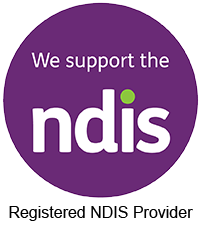Music therapists use their musical abilities combined with therapy training to assist children/teens to achieve their goals through interactive musical experiences (Australian Music Therapy Association). Music has an effect on behaviours, feelings, thoughts and actions, and music therapists understand this and can use it to promote the achievement of goals like improved communication, cognition, physical function/movement, mood, and well-being. Music therapy can be engaged in through one on one sessions or in groups. Extensive research has been done on the effects of music therapy (see below).

Music Therapy In Paediatrics
It is often used with ages across the lifespan, including with children and teens, and to address a wide range of conditions that affect mood, thinking, behaviour, communication and movement, for example, autism, ADHD, anxiety, depression, psychosocial conditions, spinal cord injuries, CP, eating disorders and PTSD to name but a few. Music Therapists, Occupational Therapists and Speech and Language Pathologists can work closely together and complement each other to support children/teens and their families to achieve their goals.
Research has found that Music Therapy can help with:
- Improved mental health and wellbeing.
- Reducing stress and anxiety.
- Regulating mood and increasing motivation.
- Anger/frustration management.
- Improved speech, communication and social skills.
- Improve verbal and non-verbal communication and physical speech function.
- Increase social communication skills and social interaction.
- Increase in Independence.
- Alternative ways to deal with situations.
- Improved memory, attention and cognitive function.
- Executive functions like self-awareness, inhibition, non-verbal/verbal working memory, emotional regulation, self-motivation, planning and problem-solving.
- Improved body movement, coordination and physical function.
- Movement of the entire body (fine and gross motor).
- Improved balance.
- Help regulate heart/breathing rate and blood pressure.
- Improve respiratory muscle strength and control.
- Improved sleep.
- Improved pain management.
If you would like further information about Music Therapy, visit Australian Music Therapy Association.

